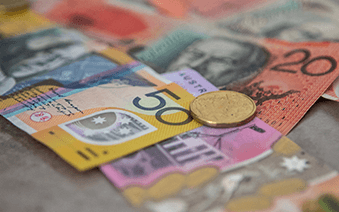You could be a collector with a dream car in mind or you’re on the hunt for a vehicle that can get you from point A to B. Either way, the process of owning a car isn’t just simply rocking up to a car yard and buying one. The cost of upkeep comes well after you take it home and some payments continue yearly – even monthly.
Knowing the running costs of a car after the fact can lessen the chance of you having to take out a bigger loan than you need. Many people think a car is a one-off purchase that only comes with small costs like fuel and servicing. Cars Guide revealed that about roughly 1 million new cars are sold in Australia each year, which means Australians heavily rely on cars as their main mode of transport.
But what if you have an unexpected car emergency and you don’t have the means to pay it off in time? Being aware of the different factors that can run your finances up the hill while owning a car will make it easier for you to manage it when they do come up so you can stay on the road.
Cars don’t come cheap and even a second-hand one will have the average Australian saving up for quite some time before they’re able to bring one home. Don’t make it harder for yourself with the annual costs of running a car – get to know the expenses that all add up once you turn that engine on.
Choosing the ideal car for your needs is important. For someone who might drive more throughout the week for a job or for social reasons, looking for a second-hand or fuel-efficient car may be more suitable. Research and compare various models and filter the ones that are known for their fuel efficiency.
It goes without saying that a car can’t run if it’s low on juice. There can be no driving if you don’t fuel up.
Depending on the make and model of your car, fuel prices can seem ridiculous some weeks but affordable in others. 4WD owners will find themselves in a rut when the cents per litre is at a high, potentially leaving fuel costs at more than $100 a week. If your job requires you to commute often, you’ll find yourself also paying more for fuel per week than you intended.
Car registrations in Australia (rego) provide your state with information that can help them track data, taxes, or criminal activity. This is why vehicle registration is important and one of the first things you must do when you get your car.
The fees and regulations change with each state but the overarching factor when it comes to your new car is that it must be registered completely under your name before you can get out on the roads. Ranging between a few hundred dollars to over $1,000, car registration can be quite expensive so it’s good to do more research on the model you drive and the laws within the state you live in.
Have a look before buying a vehicle and see how much your registration could go up to for the model you’ve had your eyes on. It might be a good idea to put the idea of owning a nicer make on hold for the time being to lower the registration cost.
Your state’s transport department is required to collect vehicle licence duty when a vehicle is licenced or its licence is transferred.
Generally, vehicles purchased by a licensed motor dealer will bundle the cost of stamp duty into the driveaway price. If it’s not bundled by the motor dealer you may get a nasty surprise in the mail with a notice that you need to pay your stamp duty.
The cost of stamp duty varies state by state but is a percentage of the vehicle value plus fees that can run up into the thousands. Each state’s department of transport will have online calculators to help you understand how much you need to pay.
This is particularly important when financing. If it’s not included in the invoice via a motor dealer means you will need to pay this amount from savings. You will also need to ensure you have these funds for privately purchased cars as the seller is not required to collect and remit stamp duty on your behalf. Be sure to ask your lender if they allow you to finance the stamp duty portion when it is not bundled in your invoice.
On top of vehicle registration, you should get insurance on your car. There’s no point saving money for a car only to see it being towed away from an accident with no alternative for you in place.
Insurance payments can be hefty, and without good budgeting a minor accident could put you out by a lot. Worst case scenario, you don’t end up buying car insurance at all and you’re left figuring out how to pay off an unexpected car emergency. Start by comparing reliable car insurance policies and fork out a little extra to ensure that no matter what happens, you’re not left with nothing.
Like travel, pet, and life insurance, it’s a necessary safety blanket. Pay for protection and worry less about being out of pocket for things going wrong.
Routine check-ups are a part of life. Whether it’s checking yourself into the doctor for a health update to glazing over your house for any appliances that need renewing, cars are no different and require the same routine maintenance.
We spend many hours driving every month. Think about all the parts of a vehicle that are designed to keep you safe and how often they need regular servicing to ensure safety is a priority. Think about checking the brakes, oil changes, and tyre rotation.
The make and model of your car can lead to different costs that come with servicing – certain brands may need a unique set of skills in order to service. Second-hand cars or older models may need special parts for the mechanic to work with. When you lay it all out, you’ll find that car maintenance costs can put a huge wedge into your savings plan.
Bringing your car in for a check is unavoidable, as not servicing it will only land you in hot water and dangerous situations. A great way to reduce the cost of maintenance is to ask around and find recommendations from others on the fairest price out there locally – you’d be surprised at how helpful the car community can be.
It’s not always easy to save up the exact amount for a vehicle you want and sometimes it helps to hop on a car loan so you can get it faster.
If you’re paying off a car loan, the costs that come with this will count towards the expense of owning a car. Make sure you’re aware of the pros and cons before deciding on a car loan to help pay off your vehicle.
Although loans can be a good option, if you're not able to make the repayments on time you can run the risk of giving yourself a poor credit rating as well as incurring extra fees and charges. Make sure you’ve planned and budgeted for your loan repayments so that you’re able to repay your loan in an affordable way which can contribute to strengthening your credit file.
Car loan approval times can have a fast turnaround. Making sure you know what documents you need to get a car loan upfront will help ensure that your application is assessed as quickly as possible.
Car enthusiasts and hobbyists might find themselves learning about their car and using it as a creative outlet. Just like computers, cars can be workshopped and tinkered with to create a whole new vehicle unique to the person driving it.
In order to do this, you’ll need car parts. Certain parts for a make or model don’t come cheap and online is often a go-to source for hobbyists looking to tweak their car. If you drive a Mercedes or a Subaru, these brands might need a specific part for it to work when it all comes together.
Yes, this is another extra cost when buying a car, we know. But the result of what you can drum up for your next car show will be worth the effort in whatever it takes to source these parts.
Find the parts you’re looking for at an affordable price through second-hand or resale websites such as Parts Plus or ANZ Auto Parts. This will cut down the overall cost of maintaining your vehicle.
Don’t forget, a car is one of those items that depreciates as time goes on. Unlike buying and owning a home where the market value may increase each year, a car can be quite the opposite.
As soon as your foot hits the pedal, the price you paid for the vehicle will only continue to go down. This is the ultimate hidden cost of buying a car in the first place – but as long as you’re happy to take this path, it’s up to you to find the best method of managing a car expense plan that works for you.
The information contained in this blog is general advice only and does not take your specific circumstance into consideration. You should assess your own financial position, objectives, and requirements before making any financial decisions.
Australian Credit Licence 391436. Subject to lending criteria being assessed. Check our TMD.

Answering your questions about loans and staying savvy

Get more bang for your buck with these handy tips.

Need some advice that’s not about cash? We can help.
Find your local Cash Converters storeWith over 150 stores across Australia, we're always here to help. Find your local Cashies today. |
Your cart is empty.